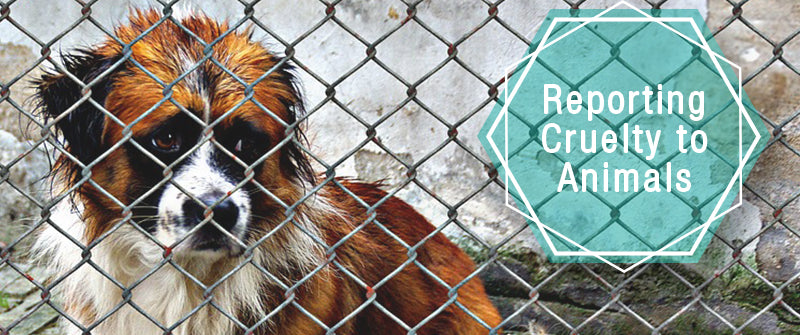Animal cruelty is an insidious blight that affects countless innocent creatures, leaving them vulnerable and suffering. For those living in Georgia, understanding the steps necessary to report such cruelty is paramount. Are you prepared to stand up for those who cannot speak for themselves? While the desire to act is admirable, navigating the complexities of legal and bureaucratic systems can pose a significant challenge. This article will walk you through the essential steps and information needed to make a formal report of animal cruelty in Georgia.
First and foremost, recognize that animal cruelty encompasses a broad spectrum of behaviors. It can manifest as neglect, physical abuse, abandonment, or even neglect of basic needs. In Georgia, the law defines animal cruelty quite explicitly, and understanding this definition is crucial for effective reporting. According to Georgia law, any act that causes unnecessary pain, suffering, or death to an animal can be classified as cruelty. This brings us to the first step in reporting—education.
Before initiating a report, equip yourself with as much knowledge as possible regarding the specific situation you are witnessing. Take a mental inventory of the conditions and behaviors you observe. For instance, does the animal appear malnourished? Are there injuries that require immediate veterinary assistance? Documenting these observations can serve as valuable evidence in your report.
The second step is to gather essential documentation. A detailed report will significantly enhance the credibility and the efficacy of your complaint. What exactly should you include? Begin by capturing photographs or videos of the animal in distress. Visual evidence is compelling and can bolster your case against the perpetrator. When taking images, ensure they clearly showcase the animal’s condition. Include timestamps if possible, as this can help establish the timeline of the cruelty.
Next, gather information about the location where the cruelty is occurring. Writing down the address, or at least the nearest significant landmark, is vital. Include directions that can guide investigators to the site. Often, the locations of such incidents are not readily identifiable, so providing clear details can expedite the response time of animal welfare authorities.
Consider the role of witness statements. If you are not alone in witnessing the mistreatment, ask other observers if they would be willing to provide statements corroborating your claims. This collective testimony can strengthen your report and encourage authorities to take action swiftly. Look for signs that others may have seen what you have—do other people in the area react with concern or even intervene? A coalition of concerned witnesses can represent a more compelling argument for action than a lone voice.
Once you have gathered all necessary materials, it’s time to reach out to the appropriate authorities. In Georgia, there are several avenues through which you can report animal cruelty. The Georgia Department of Agriculture oversees animal welfare and cruelty cases at the state level. You can contact them directly through their offices. Additionally, local law enforcement agencies, including sheriffs and police, often handle animal cruelty cases, so it may be practical to reach out to them as well.
When filing your report, be as detailed as possible. Provide all the information you’ve compiled: describe the animal, summarize the conditions you observed, and offer any evidence in your possession. If you have witness statements, present these alongside your own account. It’s crucial to state clearly that you believe animal cruelty is occurring, as this will force the authorities to recognize the urgency of the matter.
Once the report is filed, you may wonder what happens next. In Georgia, law enforcement and animal control agencies have protocols in place to investigate reports of cruelty. However, responsiveness can vary based on several factors, including the number of active cases they are managing at a given time. If you notice a lack of action after your report, follow up with the agency you contacted to inquire about the status of the case. Persistence can play a pivotal role in ensuring the necessary steps are taken. Don’t hesitate to elevate your concerns if initial reports seem to fall on deaf ears.
It’s worth noting that every citizen has a role in ensuring the protection of animals. Whether you are a bystander witnessing neglect or abuse, your voice matters. Should you feel uncomfortable reaching out directly to authorities, consider contacting local animal welfare organizations. Many such non-profits can act as intermediaries, facilitating the reporting process on your behalf. They often have experience dealing with similar cases and can provide further guidance throughout the process.
In conclusion, reporting animal cruelty in Georgia is a multi-faceted process that requires diligence and compassion. Equip yourself with knowledge, gather evidence, and engage with the appropriate authorities. The next time you encounter what appears to be animal mistreatment, ask yourself: “What can I do to protect these vulnerable lives?” Every report can lead to a significant change, potentially rescuing an animal from continued suffering. Remember that with each action taken, you advocate for those who cannot advocate for themselves. Your involvement is not just welcomed; it is necessary.








